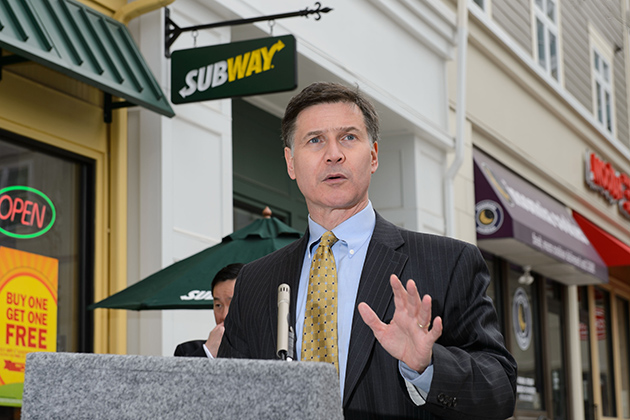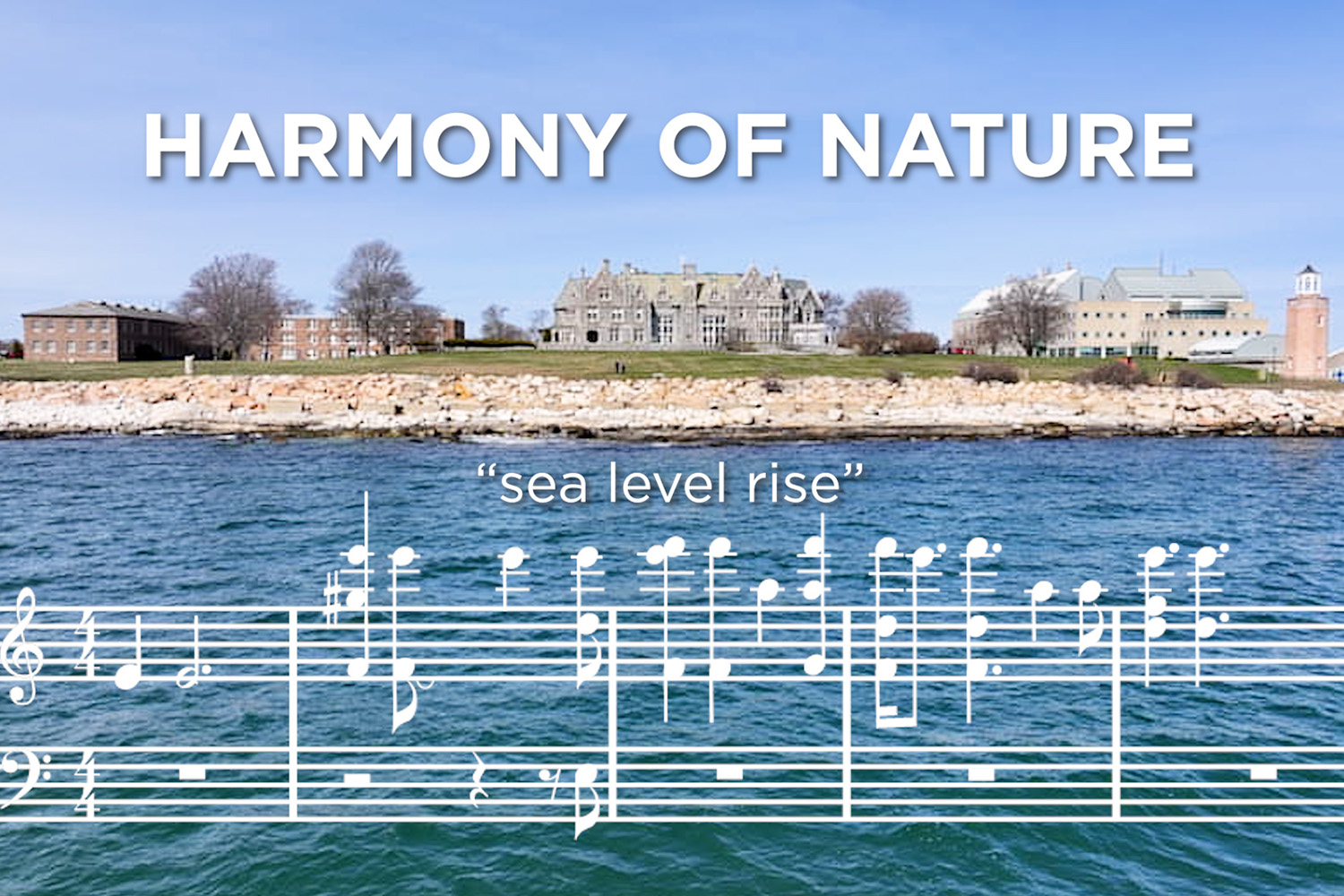
Connecticut Department of Energy and Environmental Protection Commissioner Daniel C. Esty toured the new Storrs Center Tuesday, taking time out to praise the Mansfield Downtown Partnership for its commitment to building an environmentally sound and energy efficient community that should be a model for other towns to follow.
“It is a pleasure to compete with the sounds of construction equipment that is building this complex into what I see will be a model of what the smart growth development of the future will look like – a mixed-use residential, commercial, walkable, bikable, electric car-driveable community – and it is a special joy to be here today to celebrate that,” Esty said following an early morning tour of the complex along Dog Lane.
Esty arrived in Storrs in his Chevrolet Volt, parking it neatly in one of four public charging stations in the Storrs Center parking garage. While a small crowd of town officials and others looked on, Esty used his parking ticket to activate the charger and plugged in a thick black power cable that dropped quietly from the ceiling.

Dan Shanahan of Control Module Industries of Enfield said the dual parking ticket-charger activation technology was especially consumer friendly and “the first of its kind system in the world.” Mitch Gross, a spokesman for Connecticut Light & Power which donated charging stations to the town of Mansfield and other communities across the state as part of a research project, said the Level 2 chargers supply 240 volts and can fully charge a vehicle in about four hours.
One of the Chevrolet Volts charging in the garage Tuesday belonged to Hertz, which offers the electric vehicle as part of its small fleet of cars available to UConn students and visitors through the company’s Hertz On Demand car share program.
Mansfield Mayor Betsy Paterson said the town’s five public charging stations – four in the Storrs Center garage and one near the local community center – support the community’s vision and commitment to environmental sustainability. Paterson noted that an 83-kilowatt solar array on top of the Mansfield Community Center currently supplies about a third of the center’s electrical needs, and the new parking garage is constructed to allow for the installation of a photovoltaic energy system on the upper level.
“We anticipate the day when a solar carport on top of the garage will support the electrical needs of the building and its four charging stations,” Paterson said.

UConn Provost Mun Choi praised Esty, Paterson, and others for their environmental stewardship and pledged the University’s full commitment toward developing a more sustainable community. UConn is a member of the independent, non-profit Mansfield Downtown Partnership, along with the town of Mansfield, local business owners, and members of the community.
“As a university, we are committed partners to the town of Mansfield,” said Choi. “During the past several years, we’ve instituted programs like a fuel cell microgrid that powers UConn’s Depot Campus. We recently started a water reclamation plant that recycles a half million gallons of water a day. We also have a new major in environmental studies so our students can become leaders in the field.
“These programs, we believe, are critical not only for putting into practice our belief in environmental stewardship but for making a difference for future generations,” he added.

Cynthia van Zelm, executive director of the Mansfield Downtown Partnership, said sustainability was a key part of the Storrs Center project from the very beginning. Eventually, the new Storrs Center will include an “intermodal transportation center” that will provide stops for UConn, local, and regional buses, and a prominent bike storage and locker program. The transportation center will “add to the tradition in Mansfield to provide accessible alternative modes of transportation,” she said.
“We are looking forward to the next stage of the Storrs Center that will continue to promote an economic and environmentally sustainable downtown for residents and visitors to enjoy,” van Zelm added.
Esty stressed that the Storrs Center project and others like it are not strictly about electric vehicles, natural gas vehicles, or other new technologies that protect the environment.
“It’s about choice,” he said. “It’s about flexibility. It’s about what we call mobility. And that’s the ability for some people to walk here, some people to drive here, some people to take a shuttle bus. It’s really ensuring that in the future we don’t have the kind of dependency on a car that we had in the 20th century.”


